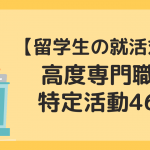公開日時 : 2020年05月26日
更新日時 : 2022年02月07日
In Japan, there are many companies which arrange accommodation for their employees, but also those who have no involvement in your house-hunting process. In this article, we will outline the process of finding your own accommodation in Japan – in the case that you have to organize it yourself.
① Deciding your Preferences
In general, there are 5 main factors which should be your priorities when deciding on a property.
1.Budget
2.Commuting time
3.Layout of the property
4.The building’s structure
5.Amenities and facilities
Based on this, a good idea would be to decide on the one most important condition for your desired accommodation, which is absolutely non-negotiable for you. Then, decide on your other four conditions in order of importance and begin your search with this in mind.
② Beginning your House-Hunt
The vast majority of foreign exchange students in Japan are looking to rent. When looking for rented accommodation, you can search on the internet, as well as consult directly with a real estate agent. It is often the case that the major real estate companies have English-speaking/foreign staff working for them, so if you feel uncomfortable dealing with such situations through Japanese, going to one of these companies could be of help to you. With their guidance, you will be able to find multiple properties which could pique your interest.
③ Going to a Viewing
Once you have decided on a few potential properties, you can go to view them. This means to actually visit the property before committing to any contracts. Normally, you are sent out to see it with a representative of the real estate company that is managing the property. This is a good opportunity to see certain aspects of the property which cannot be fully described on paper, such as the property’s lighting, storage space, etc. It is always best to communicate as much as possible with the real estate agent who’s accompanying you, as it could make future consultations with them easier – so chat a lot!
④ Applications, Contracts and Moving In
Once you have decided on a property, you will need to enter your information into an application form (“入居申込書” – nyuukyo-moushikomi-sho). Make sure you’re clear about all of the necessary expenses with regards to rent, etc.
Common Expenses:
① Rent
The fee for use of the property and the facilities that come along with it (on a monthly basis). In general, each month is paid for in advance (ie. the following month must be paid for before the end of each month).
② Shiki-Kin
The deposit paid to the property owner before moving in to cover expenses in the case that the tenant has not paid their rent, damages or mistreats the property, etc. This is paid back to the tenant upon moving out.
③ Rei-Kin (Key Money)
This is money paid to the owner of the property as a gesture of gratitude (normally 1-2 months of rent’s worth). This is not returned to the tenant.
④ Brokerage Fee
A commission as part of transactions upon purchase or lease of property, paid to the real estate company for their help in the process of contract management, giving advice, etc.







